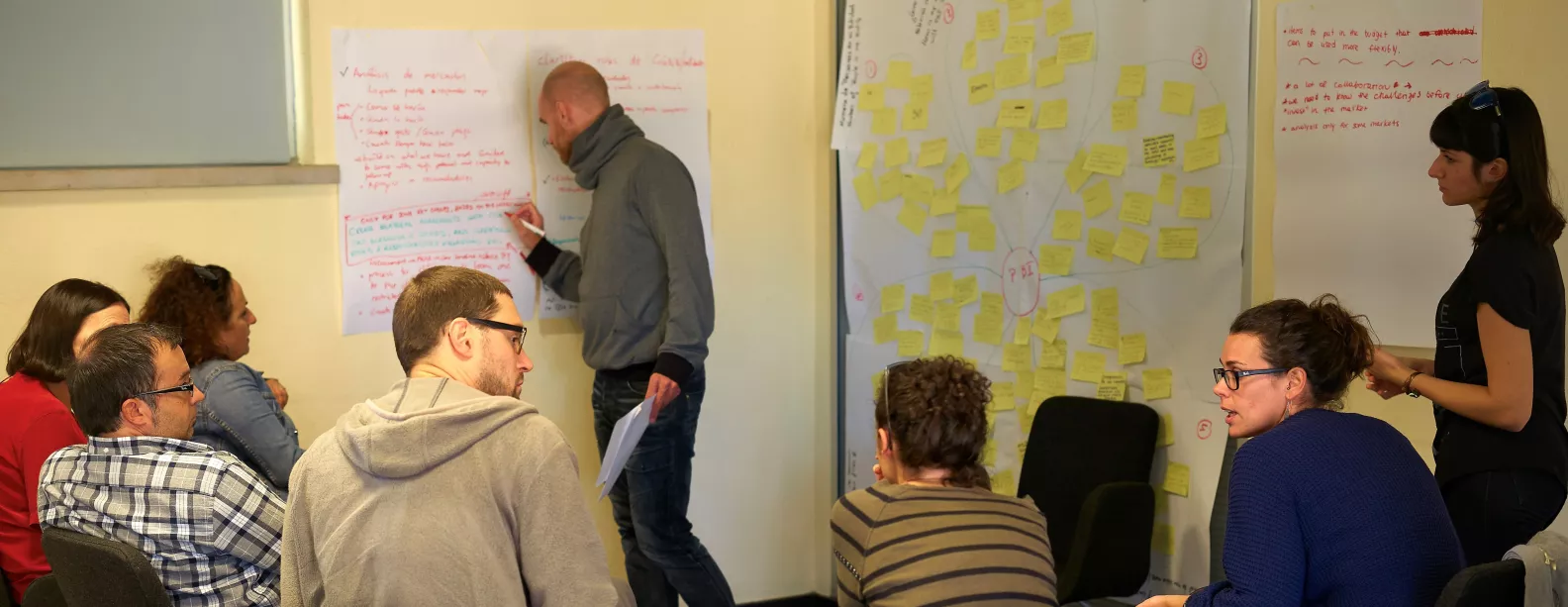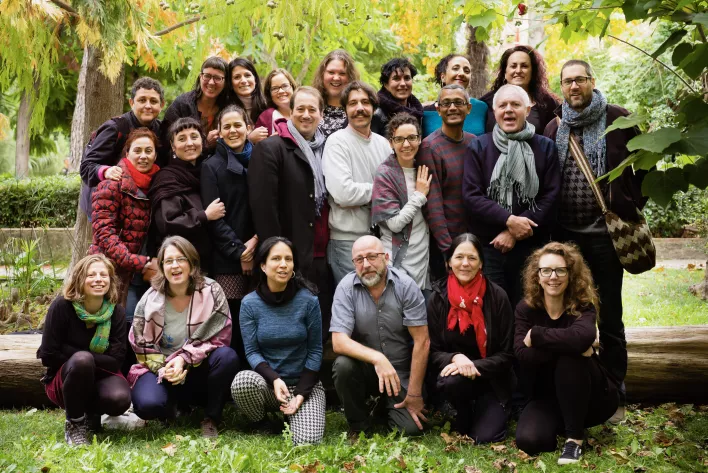
PBI is a non-hierarchical organisation and operates by delegated consensus. This means that all PBI entities have been delegated by the General Assembly the right and responsibility to take decisions by consensus among their own members relating to their areas of responsibility as defined in the bylaws. Entities are encouraged to consult with others before taking decisions that have implications wider than their own entity.
PBI is made up of entities that work together to protect and support human rights defenders.
Country Groups form the basis of PBI and are responsible for the incorporation and initial training of volunteers and Project support networks. They are also responsible for advocacy, fundraising, publications and improving the visibility of PBI and organizations we accompany.
The Projects in Colombia, Guatemala, Honduras, Indonesia, Kenya, Mexico, Nepal and Nicaragua/Costa Rica carry out protection work, public relations, reporting, training and support to volunteers, advocacy, fundraising, collaboration with other organizations and publications. They also coordinate, together with the Country Groups, creating and activating international support networks.
The International Secretariat (ISec) is made up of the International Council, the International Operations Council and the International Office and technical committees. Together, they are responsible for the administration, coordination, finance, fundraising, development and monitoring of policies, organizational development and international publications.
The staff of the International Office (IO) in Brussels, Belgium, is responsible for the development of the organization, coordination, communications, financial management and administration. You can find the address below.
The highest decision-making body of PBI is the General Assembly (GA), which meets every three years, takes key strategic decisions and appoints the International Council. The GA is made up of volunteers and staff representatives from PBI country groups and projects.

Between General Assemblies, key international decision-making bodies of PBI are:
The International Council (IC), made up of up to 5-12 independent board members, is responsible for governance. All IC members are directors of the PBI non-profit corporation registered in the State of Washington, USA.
The International Operations Council (IOC), consisting of staff representatives from projects and country groups, is responsible for operational issues.
Current IOC members are: Anna Manconi, PBI Switzerland; Karim Jah, PBI Germany; Amaya de Miguel, PBI Guatemala; Amanda Asenjo, PBI Colombia; Carla Cavarretta, PBI Mexico; Sierra Schraff Thomas, International Office; Alberto Fait, PBI Kenya; Giovanna Teijido Vazquez, PBI Honduras; Gabriela Vargas, PBI Nicaragua/Costa Rica; Andrew de Sousa, PBI Indonesia, Faith Garlinghton and Jorge Rodriguez-Larrain, PBI USA; Alberto Guerrero, Coordinator, PBI Catalonia, and Brent Patterson, PBI Canada.
Both councils meet face to face annually and monthly by conference call. They are supported by international office staff and by committees and working groups whose members have specialist expertise in particular areas of governance and operations.
The International Secretariat and Field Projects form the structure of PBI which is registered as a nonprofit corporation in the state of Washington, United States. Country Groups and Associate Groups are independent bodies that determine their own structures and are legally responsible for their actions.
PBI has NGO status associated with the United Nations Department of Public Information and Consultative Status to the United Nations Economic and Social Council (ECOSOC).
